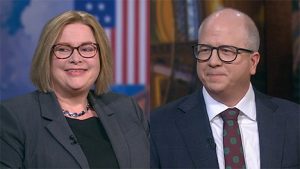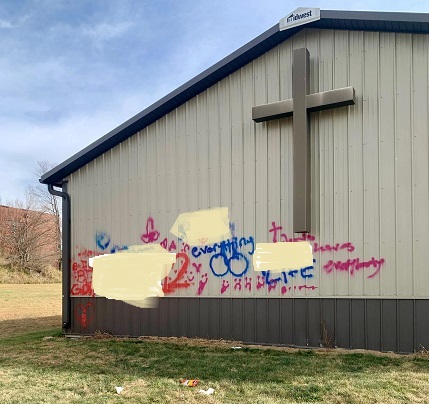(Radio Iowa) – The races in Iowa’s first and third congressional districts are considered among the few competitive U.S. House races in the country and campaign spending in the two districts has skyrocketed to at least $50 million. The data comes from AdImpact, a firm that tracks spending on TV and radio as well as digital and social media. Many mailboxes in those two districts have been stuffed with campaign appeals, too. Iowa State University political science professor Dave Peterson said it’s about motivating a very small number of voters.
“The sweet spot for campaigns and for candidates is at this point to identify people who are unlikely to participate unless they are pushed a little bit, but if they do participate are going to vote for that candidate,” Peterson said, “and that’s where the targeting really goes.” Drake University political science professor Rachel Paine Caufield said research shows mailings that target infrequent voters who’d be inclined to support a candidate are effective.
“Those kinds of campaign activities can be very effective in mobilizing people to go vote and activating them if they’re on the fence and maybe deciding whether or not to take time out of their Tuesday. They might say: ‘Oh, you know what, I should go do this, this is important,’” Paine Caufield said. “…Some people may have received campaign mailers that appear to almost shame them for their voting record or share their neighbor’s voting records. There is research demonstrating that that is actually a pretty strong mobilization tactic.”
The two professors made their comments during a weekend appearance on Iowa Press on Iowa PBS.

Drake University professor Rachel Paine Caufield and Iowa State University professor David Peterson on the Iowa Press set. (Iowa PBS photo)
Republican Mariannette Miller-Meeks, an eye doctor, is in a tight race in the first congressional district. She said during a campaign stop in Oskaloosa that reauthorizing the Trump-era tax cuts will be a priority if she’s reelected. “People need to know their paychecks will get smaller if we do not pass the Tax Cut and Jobs Act of 2025 because tax brackets will automatically go up,” Miller-Meeks said. “Also in the Tax Cuts and Jobs Act (of 2017) was doubling the child care tax credit.”
Democrat Christina Bohannan, a University of Iowa law professor who ran against Miller-Meeks in 2022, said that campaign laid the groundwork for this one. “We really just hit the ground running again this time and added more volunteers, you know, more of a field operation to get out in a grassroots way to Iowa and it’s worked,” Bohannan said during an interview with Radio Iowa. Bohannan started her Saturday meeting with volunteers in Clinton County. “We have knocked nearly 100,000 doors across this district,” Bohannan said. “It is so close…and what we know is that it all comes down to turnout in these last few days. That is the absolute key.”
Miller-Meeks campaigned in Muscatine and Davenport on Sunday. “Scott County is our largest county, so certainly Scott is a very important county for us, but every county is,” Miller-Meeks said. “…Their votes matter. Their voices matter.” The other closely watched congressional race in Iowa is in the third district where Republican Zach Nunn is seeking a second term in the U.S. House. Lanon Baccam, the Democrat running against Nunn, said his campaign’s volunteers have been focused on reaching voters for one-on-one conversations.
“It’s an unreal number,” Baccam said Saturday during an interview in his campaign office in Windsor Heights. “We have been operating over the last several weekends over 5000 doors a day. We have that many volunteers out knocking doors at this point. That’s huge for us in the final stretch here.” Nunn has been telling supporters his race is at the center of the battle for partisan control of congress. “We have a real opportunity with now a very clear and proven record,” Nunn said during an interview with Radio Iowa. “Being able to get out there and have your voice heard is more than just about the election. It’s more about what the next two years are going to look like in America.”
Iowans may still vote early today (Monday). Check with your county auditor for times and locations. Election Day voting opens at neighborhood precincts at 7 a.m. tomorrow.

















